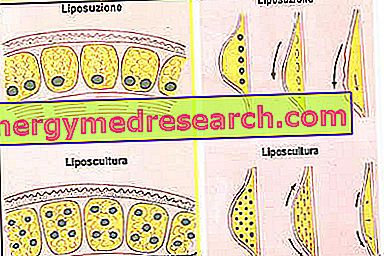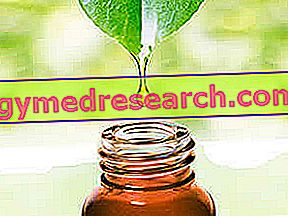The African pygmy ( Pygeum africanum Hook f., Syn. Prunus Africana Kalk.) Is an evergreen tree, about thirty meters high, that grows in the forests of equatorial Africa. In phytotherapy the bark is used, to which antioxidant, antiphlogistic and supportive properties are ascribed in the symptomatological treatment of benign prostatic hypertrophy.

Used parts and properties
The bark of the dried African pygmy has a variable color from red to black-brown, with a strong odor reminiscent of almond. The most significant constituents present in its lipophilic extract include phytosterols (β-sitosterol is the most representative), fatty acids (including myristic, palmitic, linoleic, oleic, stearic and arachidonic), triterpenoids (ursolic acid, oleanolic acid etc.) and alcohols (docosanol etc.).
The African pigeo owes its anti-inflammatory action to the inhibitory activity on the 5 lipo-oxygenase, which determines a lower formation of the inflammatory mediators catalyzed by this enzyme, in particular of the leukotriene B4.
In vitro studies have shown that Pygeum africanum extract inhibits the growth of prostatic fibroblasts induced by growth factors such as EGF (Epidermal Growth Factor), bFGF (basic Fibroblast Growth Factor) and IGF-I (Insulin-like Growth Factor). The African pygmy is also a weak inhibitor of the enzyme 5 alpha-reductase and this effect, together with the previous one, could give this "plant drug" a preventive and therapeutic role in the presence of benign prostatic hypertrophy.
In a multicenter study (2), a Pygeum extract (Tadenan) showed good efficacy in the symptomatological treatment of benign prostatic hypertrophy. Given at doses of 100 mg a day for two months, followed by a month of suspension, Tadenan has indeed guaranteed a significant improvement in the quality of life (+ 40%) and IPSS * (+ 31%), with a reduction in nocturia episodes of 32%. Also significant are improvements in maximum and mean urinary flow and drained urinary volume. Prostate volume and quality of sexual life remained unchanged.
In another double-blind study (3) conducted on 134 subjects, 25 mg of African pigeo extracts and 300 mg of nettle root extract, taken for eight weeks, were able to significantly improve the symptoms of hypertrophy benign prostatic, especially with regard to nocturia, already after 28 days of treatment.
Mode of use
Daily dose: one gram of micronized drug or 75-200 mg of standardized lipidosterolic extract, in divided doses, to be taken on a full stomach to minimize possible gastrointestinal effects.
Contraindications, interactions and adverse effects
The lipophilic extract of African pigeo is generally well tolerated. Few cases of side effects such as headache and gastrointestinal disorders of negligible and transient severity, such as nausea, diarrhea and gastralgia have been reported.
Given the possible interference with androgen and estrogen metabolism, the use of the extracts is contraindicated in pregnancy, lactation and in children under 12 years. Also noteworthy are the possible interferences with hormonal therapies, and by summation of action with finasteride and dutasteride (drugs widely used in the treatment of androgenetic alopecia and prostatic hypertrophy). In any case, the prescription and the medical check-up are necessary before taking it.
Note
In Italy, the African pigeo is currently included in the list of herbs not allowed in food supplements; therefore such products are not available on the market. On the other hand, the use of plant drugs with a similar action profile and use is admitted, such as pumpkin seed extracts and serenoa repens (dried ripe fruit).
However, African pigeo is used as a drug in some registered medical specialties.



